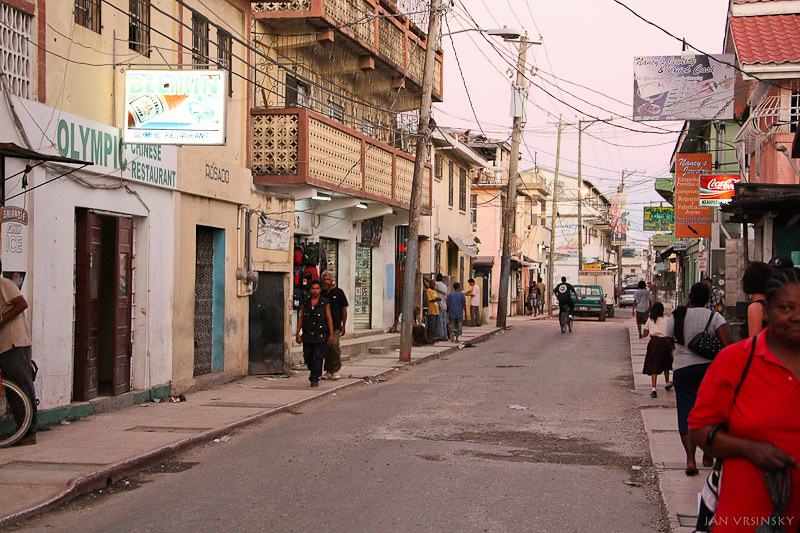Homelessness in Belize
 In Belize, the rate of poverty hovers around 42%. Many Belizeans do not have the financial resources or means to access adequate clothing, shelter and food. Not surprisingly, most of Belize’s homeless population falls vulnerable to informal housing and shelter lacking appropriate plumbing, sanitary conditions and infrastructure. To address homelessness in Belize, outside organizations offer resources and assistance to vulnerable families, individuals and communities.
In Belize, the rate of poverty hovers around 42%. Many Belizeans do not have the financial resources or means to access adequate clothing, shelter and food. Not surprisingly, most of Belize’s homeless population falls vulnerable to informal housing and shelter lacking appropriate plumbing, sanitary conditions and infrastructure. To address homelessness in Belize, outside organizations offer resources and assistance to vulnerable families, individuals and communities.
Cost of Living
For a typical family of four living in Belize, monthly expenses far outweigh income. Average monthly costs total around $2,500, without rent, while the average net salary comes in around $950 per month. Furthermore, the cost of housing can be relatively high compared to average incomes, contributing to affordability issues for low-income individuals and families. With an unemployment rate of 9.7% as of 2022, many Belizeans are plunged into poverty, unable to afford a roof over their heads.
Furthermore, essential goods and services are becoming increasingly unaffordable and inaccessible, especially for rural communities. Urban centers present more comprehensive ranges of housing options, whereas rural areas provide limited options and aid for vulnerable people. As a result, there are a large number of informal settlements and unauthorized settlement areas, that lack the proper legal recognition, infrastructure and basic amenities.
Impact on Children
Notably, children are the most vulnerable to homelessness. UNICEF finds that half of the children in Belize under the age of 15 are classified as poor. Homelessness among children means that the most vulnerable in society lack basic needs, threatening the development and nourishment of young, fragile livelihoods. In conjunction, UNICEF and ECLAC (United Nations Economic Commission for Latin America and the Caribbean) find that “6 out of 10 children in Belize lack at least one of these basic needs: adequate nutrition, clean drinking water, proper sanitation, adequate housing and access to education and information.”
A home is fundamental to properly care for and support a child. To alleviate the risks and adverse effects of homelessness on children, comprehensive support for the continuation and stability of a child’s education promotes positive outcomes. Addressing the unique needs of homeless families and children involves access to stable housing, nutritious food, health care, and targeted programs for mental health support.
Initiatives to Reduce Homelessness
Countering homelessness in Belize requires a combination of efforts, including affordable housing initiatives, rent subsidies, homelessness prevention programs and comprehensive poverty alleviation efforts. Here is a list of varying organizations and comprehensive plans fighting for people experiencing homelessness.
- The Welcome Resource Centre – Since opening its doors in 2013, the Welcome Resource Centre continues to offer daily hot meals, hygiene facilities and a safe place for the homeless and mentally ill. With over 400 registered homeless, the center hosts over 50 persons per day. Furthermore, they provide educational guidance in pursuit of employment the homeless and opportunities to develop skills. In engagement with those suffering from mental illness, WRC hosts daily programs encouraging physical and mental involvement in purposeful, therapeutic activities. In addition, the organization sponsors counseling for individuals, groups and families.
- Hand in Hand – Hand in Hand is an organization rooted in Belize City, building homes for Belizean families. Working with the NGO Building for Change, volunteers work alongside impoverished families, creating not only a home but also cementing personal connections with the families. Since 2002, over 450 homes have been built, providing vulnerable families with the safety and shelter of a house.
- Remar Belize – In pursuit of their mission to “fight for disadvantaged people in Belize to relieve all suffering from poverty, social exclusion, sickness and particularly among people affected by substance addictions,” Remar Belize offers several programs and assistance to aid those struggling with homelessness. These initiatives include temporary/permanent shelter, personal hygiene, food, clothing, occupational skills training and pedagogical activities. Their work continues to evolve and serve the most vulnerable, most importantly acting as a hub for those who have no other option.
- Hope Haven Belize – Hope Haven Belize, working in the San Pedro area, serves over 150 women and children. Their efforts primarily focus on supporting children, providing shelter and care for “children who have been abandoned, neglected or sexually and physically abused by their parents or guardians.” Hope Haven also supports Colleen’s Kitchen Food Bank, provides counseling services and hosts empowerment programs for youth and young women.
Going Forward
The World Health Organization recognizes that “housing is a fundamental social determinant of Health and is recognized by the United Nations as a fundamental human right, and not a luxury, as many Belizeans still believe.” Through the work of several organizations, the homeless can access shelter and resources that invest and promote opportunities to re-introduce individuals into society and out of poverty. Reducing homelessness in Belize takes a multi-dimensional approach that requires collaboration between communities and organizations to establish positive solutions that empower all Belizeans.
– Emmalyn Meyer
Photo: Flickr
